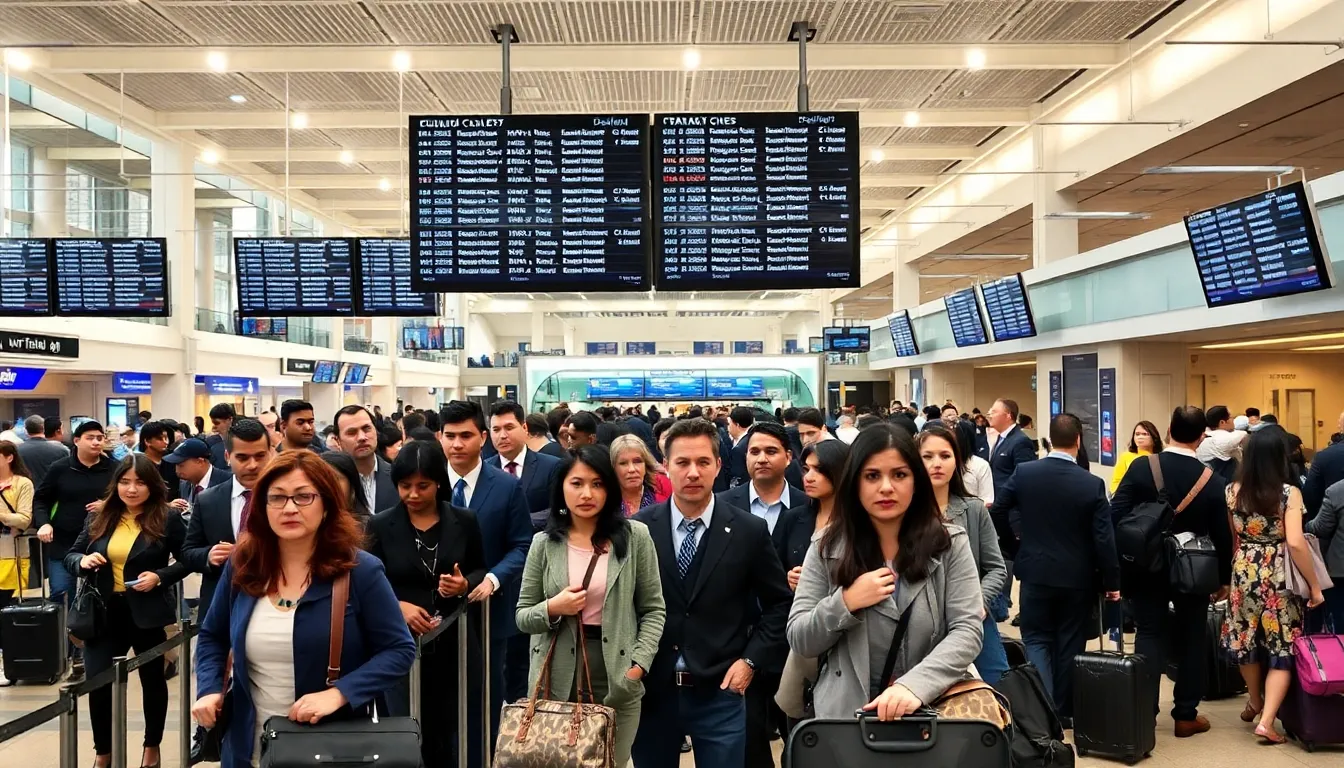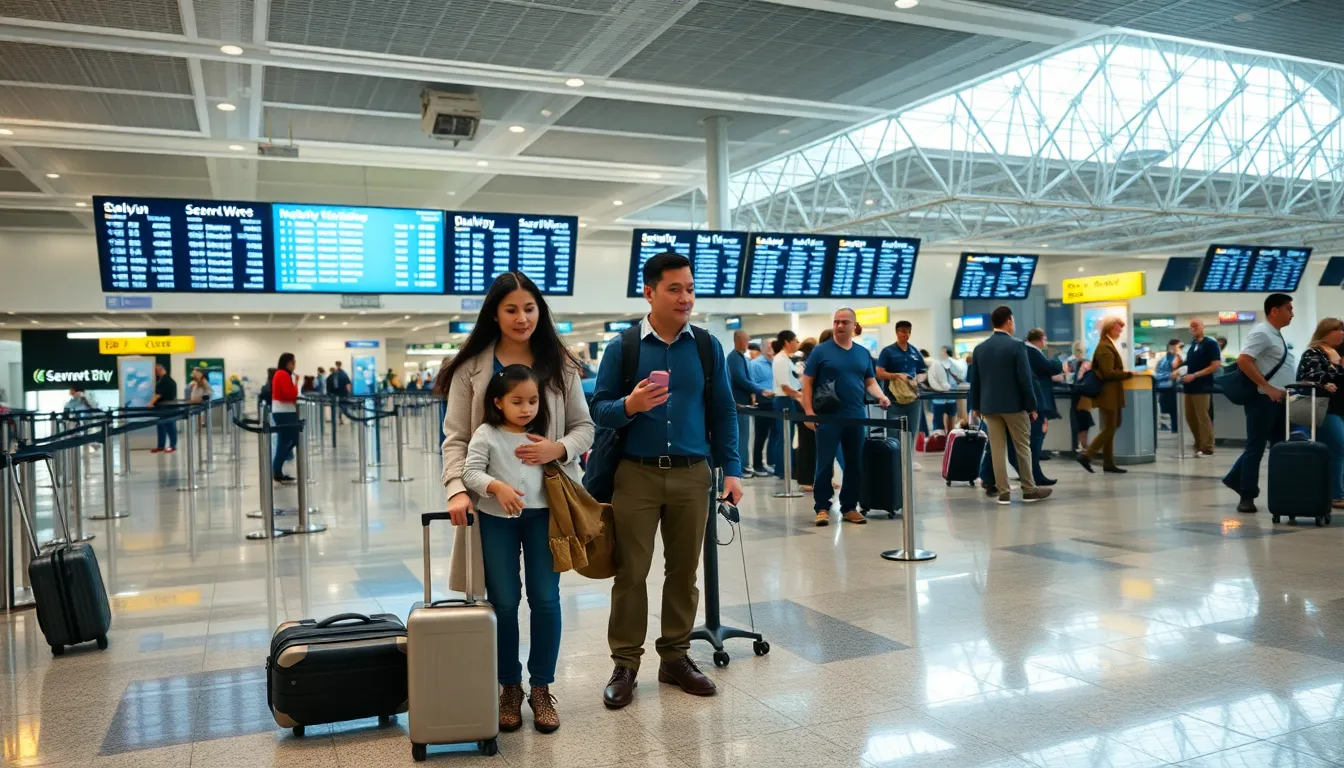Table of Contents
ToggleImagine arriving at the airport, ready for your vacation, only to find out that a government shutdown has thrown a wrench in your plans. It sounds like a bad joke, but the ever-pending question isn’t just a punchline, it’s a reality that many travelers face. As we jump into the nitty-gritty of how these shutdowns impact air travel, buckle up. It’s not all doom and gloom, but it’s definitely worth knowing what’s at stake. So, will the government shutdown affect air travel? Let’s take a closer look at what that really means for passengers, airlines, and the whole aviation industry.
Will The Government Shutdown Affect Air Travel

A government shutdown occurs when Congress fails to pass legislation funding government operations and agencies. This scenario leads to a halt in non-essential services, affecting various sectors, including transportation. As larger-than-life as it sounds, these shutdowns disrupt not only the political fabric but also the everyday lives of citizens, especially when they’re trying to catch a flight. The federal government’s inability to fund itself means that certain agencies, including those overseeing air travel, may face a reduction in their workforce. This can lead to longer lines, delayed flights, and a general sense of chaos at every airport across the country.
Current Impact on Air Travel
Air Traffic Control and Safety Regulations
When it comes to air travel, one of the biggest concerns during a shutdown is the role of the Federal Aviation Administration (FAA). The FAA is responsible for air traffic control and the implementation of crucial safety regulations. A prolonged shutdown could lead to a staffing shortage, putting a strain on air traffic controllers and, so, flight operations. Fewer controllers mean longer wait times both in the air and on the tarmac, as every flight needs careful oversight.
Airport Operations and Staffing
Moving on to the ground, airports also feel the heat during shutdowns. Security personnel, maintenance staff, and various airport services may be furloughed, leading to operational slowdowns. Passengers could find themselves navigating empty terminals or, worse yet, encountering gate agents who are rushed and overwhelmed, all of which adds to travel frustration.
Passenger Services and Security Lines
Speaking of frustration, expect security lines to stretch out like a rubber band. Less staffing equals longer waits. Travelers might find themselves stuck in lines, wishing they had packed a few snacks and a good book. The bright side? Most airport updates on wait times can be found online, allowing you to plan accordingly. But remember, this is a fixable hiccup: the overarching travel chaos diminishes once normal operations resume.
Economic Implications for the Aviation Industry
The economic implications of a government shutdown ripple far beyond the airport lobby. Airlines rely on efficient operations to maintain profitability. Fewer flights, delays, and potential cancellations can lead to a dipping customer satisfaction rate. The best-case scenario is, a brief shutdown that gets resolved quickly: but, even that leaves a scar. Airline stocks can take a hit, and passengers may find ticket prices soaring as demand outweighs the dwindling supply of available flights. Eventually, a healthy aviation industry fuels economic growth. Disruptions also mean that vendors serving the aviation sector, think baggage handling and catering, could lose business, tightening the financial noose even further.
Future Projections and Passenger Impact
Mitigating Strategies for Travelers
What can air travelers do to mitigate risks during a government shutdown? Staying flexible is the name of the game. Opting for flights outside peak travel hours can help ease the waiting game. Also, keeping a close eye on flight status alerts through airline apps can provide critical information in real time. Travelers should also consider purchasing travel insurance that covers delays or cancellations, they might just thank themselves later.
Staying Informed During a Shutdown
Knowledge is power, especially when it pertains to travel plans. Airlines, airports, and news outlets typically provide updates during a shutdown. Social media can also be a valuable resource: following your airline on Twitter or joining travel forums can keep you in the loop. Being proactive about understanding potential impacts on air travel can significantly diminish stress levels.




